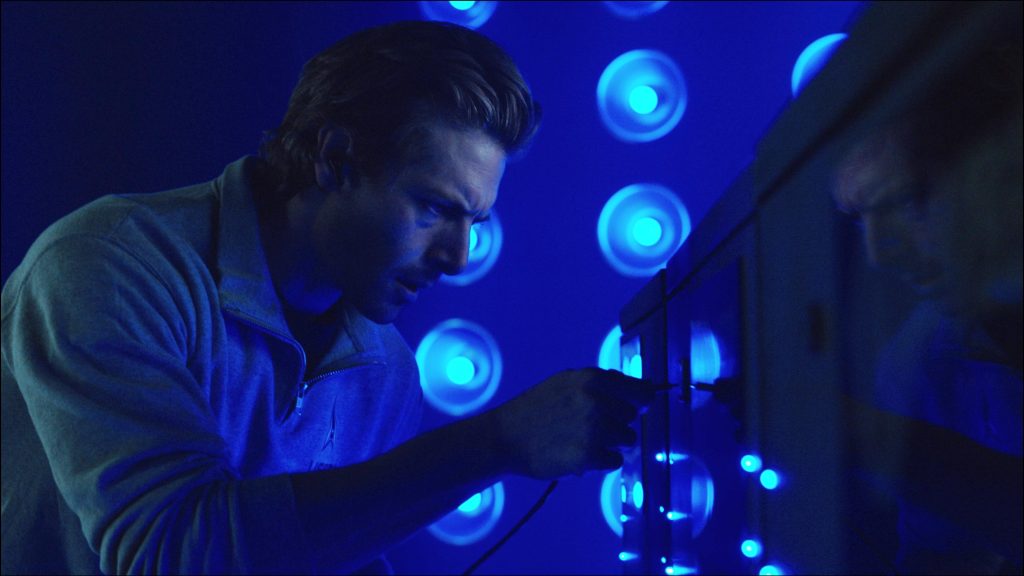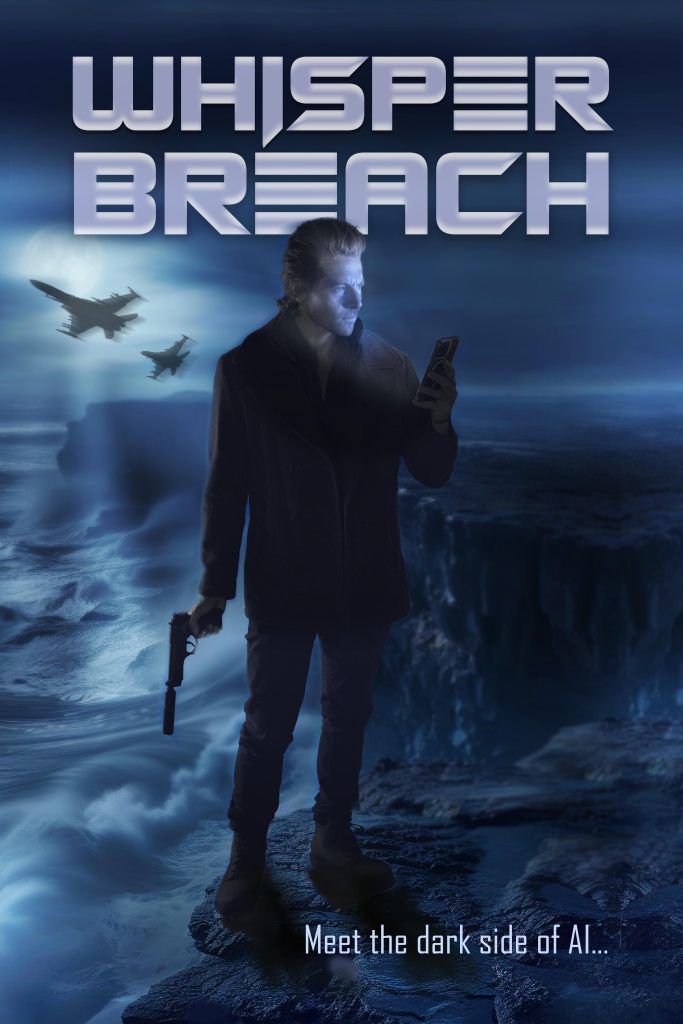When a former Cyber Warfare Specialist enlists an ex-Navy friend to test ground-breaking AI, they uncover a shocking truth in Craig Cockerill’s Whisper Breach.

Craig Cockerill’s directorial debut, Whisper Breach, arrives with a timely premise, tapping into the burgeoning anxieties surrounding artificial intelligence, Russia, and China. Cockerill, who also wrote the script, serves as cinematographer and producer; he clearly has a vision, and while the film takes on some weighty themes, its execution occasionally struggles to fulfil the brief. The script invests heavily in the personal relationships of its characters before getting them involved in cutting-edge technology. The result is a film that does have moments of charm and visual appeal, but ultimately feels like two different films, which hinders its overall impact.
The film’s opening act dedicates a significant portion of its runtime to establishing the bond between Kent (Mike Markoff), his girlfriend Sandy (Chelsea Gilson), and Winston (Garon Grigsby). We see their easy-going camaraderie, their shared history, and the individual quirks that define them. Markoff’s portrayal of Kent is a particular highlight, injecting much-needed levity with his sardonic wit and consistently bemused reactions to Winston’s increasingly technical pronouncements. There is genuine chemistry between Kent and Sandy, while later his interactions with Trixie, an overtly flirtatious neighbour, offer brief forays into romantic comedy, highlighting the film’s early, more character-driven aim. This does allow the actors to settle into their roles, contributes to a noticeable sluggishness in the pacing. The initial scenes, often framed with a functional, television movie-esque aesthetic, lack the cinematic dynamism one might expect from a feature film, although some fine underwater photography helps improve things massively.

Suddenly, a life-altering decision made by one of the central figures acts as the catalyst for the film’s more thriller-oriented second half. The immediate aftermath of this decision is explored during a visually striking fly-fishing trip undertaken by Winston and Kent. Here, Cockerill’s cinematography truly shines, employing sweeping drone shots to capture the majestic beauty of the undulating brown and orange grasslands and distant mountain ranges. Cockerill’s scenic interludes offer a welcome visual departure and moments of cinematic grandeur that contrast sharply with the more ordinary camerawork of the earlier scenes. It is against this picturesque backdrop that Winston attempts to recruit Kent into the world of artificial intelligence, laying the groundwork for the film’s central conflict
Attempts to blend elements of drama, romantic comedy, and suspenseful thriller into the narrative give us some interesting moments, Markoff’s comedic timing, the scenic beauty of the fishing, diving, and incidental sequences, and the underlying tension of Winston as AI, but tonally they feel inconsistent, with the film seemingly unable to fully commit to a single genre.

Despite these problems, “Whisper Breach’s” prescient issue about the potential dangers of advanced artificial intelligence remains timely and relevant, and Cockerill clearly intends to encourage a cautious approach to AI. In doing so he has made a film full of intriguing ideas and visual flair. It’s a directorial debut that gives us some moments of genuine beauty, sparks contemplation on a crucial contemporary issue, while also confirming to us that there is a new auteur on the block.
Leave a Reply